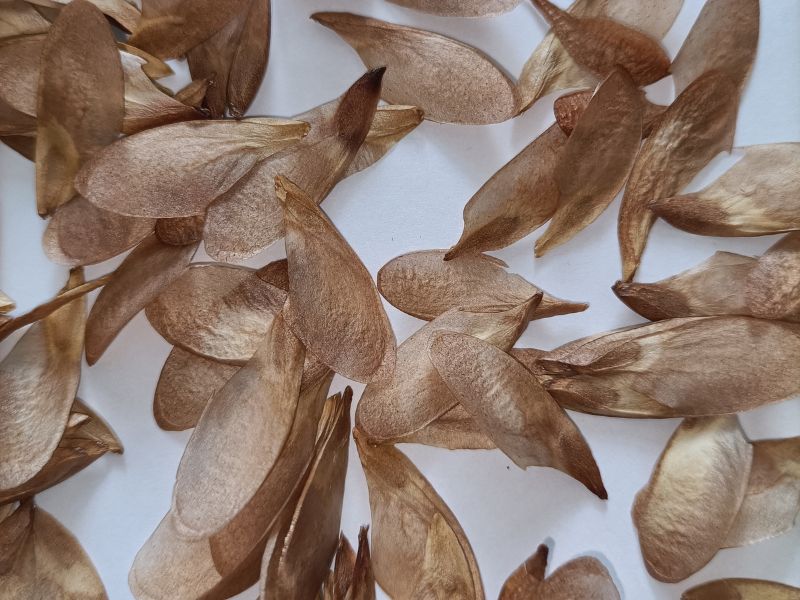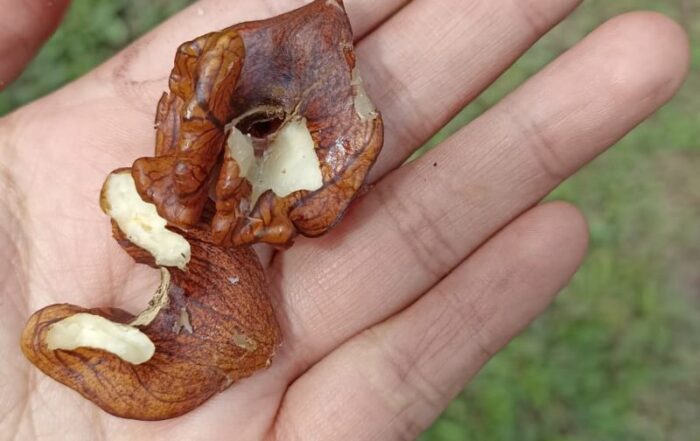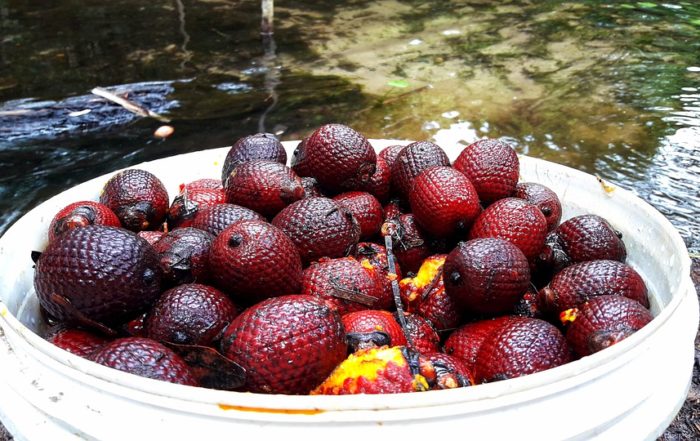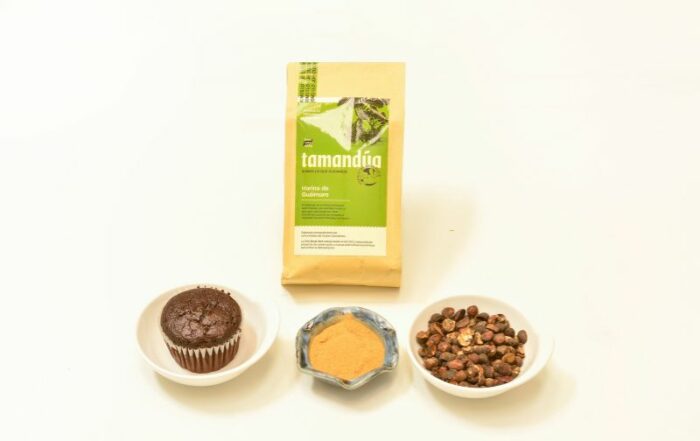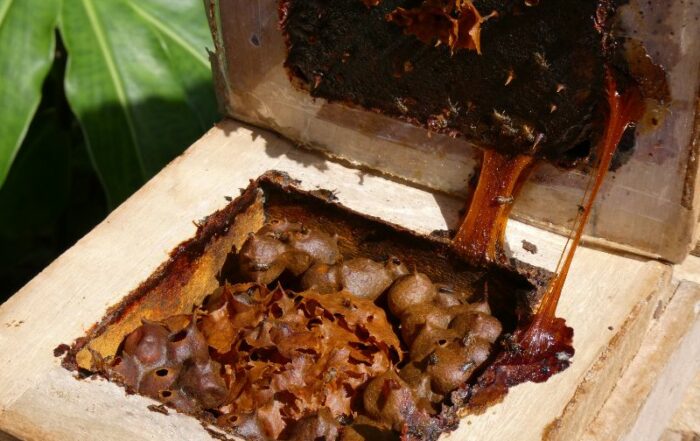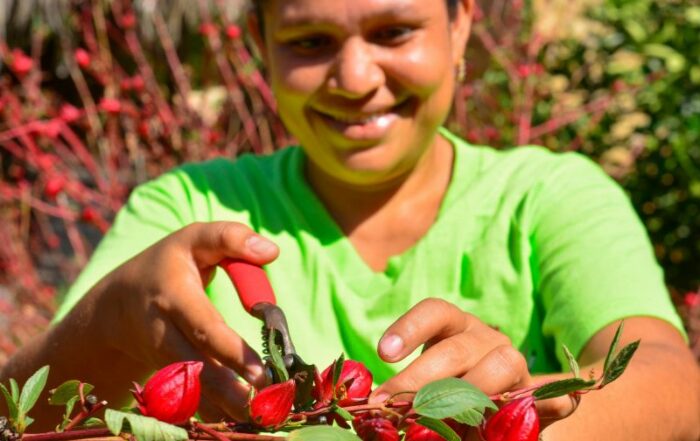The forest seed network has emerged as a necessity while assessing the scarcity of good quality seeds in the Pichanaki area, and the loss of genetic biodiversity.
In fact, deforestation has led to the loss of centuries-old trees, which provided seeds. To overcome this problem, seed trees already present on the plots of coffee producers have been identified in order to sell their seeds, generating income for the farmers. This initiative appears as an innovative solution for valuing standing trees and seeks to offer coffee farmers a sustainable economic alternative that allows them to earn long-term income while contributing to the conservation of seed trees, which are essential to reforesting and recovering soil fertility.
The focus of the project is on harvesting seeds of native species, which not only have a high commercial value, but also ensure the genetic diversity necessary to maintain the health of the forest. Among the selected species are mahogany, black walnut, capirona, tulpay, bolaina, each playing a vital role in the ecological balance of the region.
Thanks to a training programme, growers are building their skills in seed management, sustainable harvesting and sales.
The project has established partnerships with institutions such as the INIA (Peruvian Agrarian Innovation Institute) and the UNALM (La Molina National Agrarian University), which provides technical training on good harvesting and storage practices. This ensures that the harvested seeds maintain their germination quality, facilitating their subsequent sale on the market.
The marketing network will allow producers to formalise themselves as seed sellers and diversify their sources of income. The Envol Vert team is responsible for coordinating logistics and finding buyers, ensuring that participants are involved in the sale of their seeds. In this way, a virtuous cycle is generated that benefits both the local economy and the environment.
This economic alternative to deforestation began with the Coffee and Cocoa project in Tingo Maria and Pichanaki, Peru, and continues with the ConBosque project.

